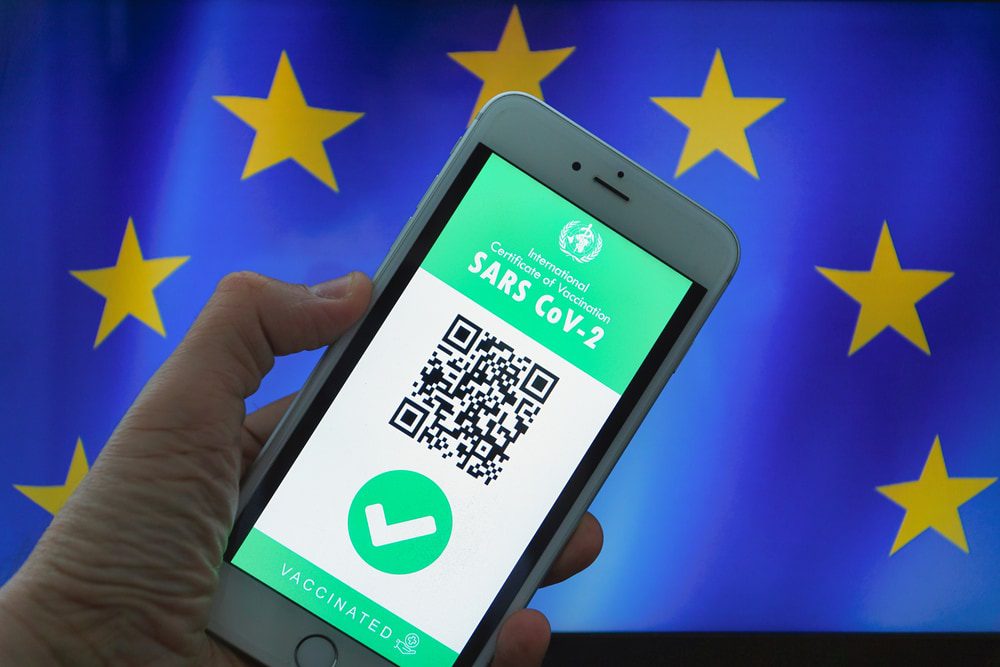
The EU’s digital COVID certificate, used to facilitate “safe” and “free” movement between EU member states, should be extended for another year, a press release by the EU Commission advocates. The EU institution has called on the European Parliament and the Council to swiftly adopt its proposal before the certificate expires on June 30th, 2022. If approved, the system would remain in place until a year later, June 30th, 2023.
The certificate, a free mobile app in use since 1 July 2021, proves that a traveler has been vaccinated for COVID-19, has received a negative COVID-19 test, or has been recently diagnosed with and recovered from the virus.
As to the reasoning behind its proposal, the Commission cites the “continued prevalence” of the COVID-19 virus in Europe and the “impossibility of determining the impact of a possible increase in infections in the second half of 2022.” The uncertainty brought about by the emergence of new variants factored into the decision as well. It remains for individual member states to decide how the certificates are used domestically.
The text also proposes limited amendments to the regulation. These include:
Commenting on the proposal, Commissioner for Justice Didier Reynders said that without the extension, “we risk having many divergent national systems, and all the confusion and obstacles that this would cause. The EU digital COVID certificate has proven an effective tool to facilitate safe and free travel.” While looking forward to the day “when it is no longer needed,” Reynders said that “in the meantime, it will enable us to move around safely in Europe.” Commissioner for Health and Food Safety, Stella Kyriakides, said that European “citizens have embraced it and it has made their lives easier.” Since the certificate is now a precondition for “free travel” within the Schengen Area, it is unclear how full hearted this reported embrace in fact is.
Meanwhile, Commissioner for the Internal Market Thierry Breton touted the EU digital COVID certificate’s trailblazing: “With more than 1.2 billion certificates issued and 60 countries connected, the EU digital COVID certificate has become a global standard. Through the digital infrastructure of the EU gateway, we continue to facilitate the acceptance of COVID certificates across borders, as the pandemic evolves.”
The Commission also proposed a “parallel regulation” which would allow non-EU nationals who legally reside in a member state to apply for a certificate.
